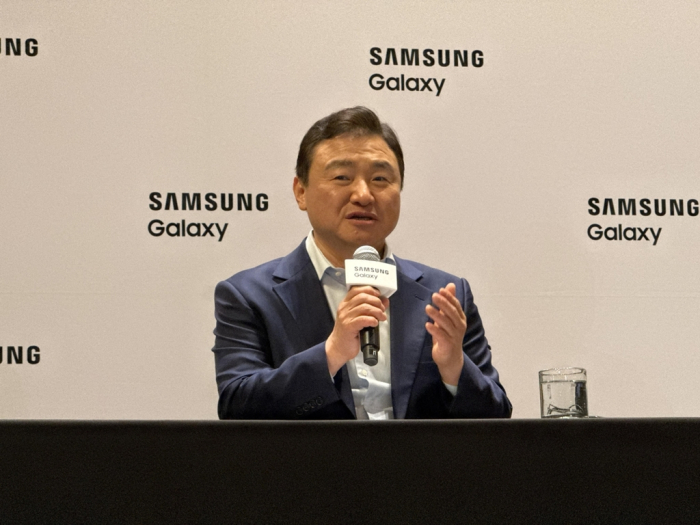
NEW YORK – Samsung Electronics Co. plans to release its first triple-folding smartphone by the end of this year to fend off growing competition, particularly from Chinese rivals such as Huawei, in the premium device market.
During a press conference on the sidelines of the Galaxy Unpacked 2025 event in Brooklyn, New York, on Wednesday, TM Roh, head of Samsung’s Mobile Experience Business Division, also said the South Korean tech giant will unveil an extended reality (XR) headset, currently under development in partnership with Google, this year.
“We are preparing new form factors to lead in the era of AI,” Roh said, confirming that Samsung’s long-teased trifold phone, previewed as the Flex G and Flex S at Mobile World Congress (MWC) earlier this year, is in the final stages of development.
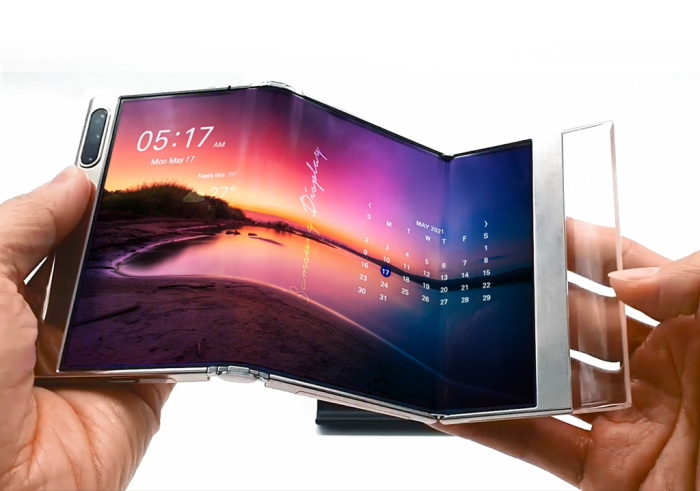
“We haven’t yet settled on the (triple-folding smartphone’s) name, but we’ll decide soon as the product nears completion,” he said.
The upcoming Samsung trifold smartphone is known in the market as the Galaxy G Fold.
Analysts said Samsung’s newly designed foldable phone will be in direct competition with Huawei’s Mate X2 Tri-Fold, which was released last year, and is seen as a strategic move to counter the Chinese company’s aggressive re-entry into the high-end smartphone segment despite US-led chip sanctions.
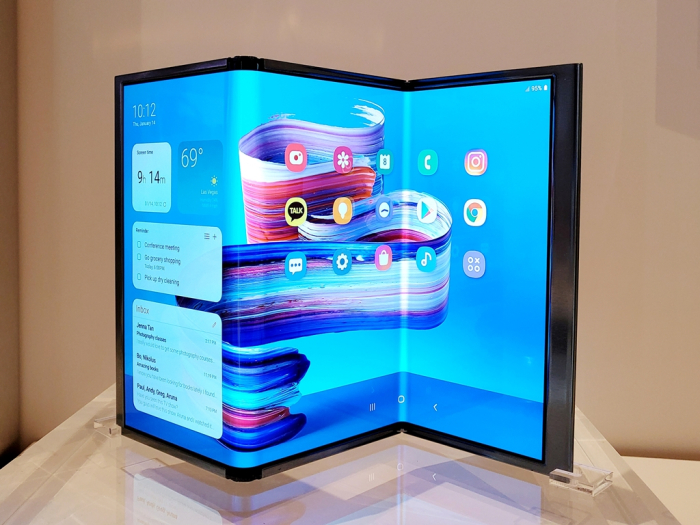
XR HEADSET UNDER PROJECT MOOHAN
At the press conference, Roh also confirmed Samsung’s plans to launch this year its long-awaited XR headset, codenamed Project Moohan, meaning “infinite” in Korean.
Roh described the product as a “breakthrough innovation” in immersive technology.
Project Moohan, Samsung’s joint project with Google, aims to release an Android XR-based headset by the end of this year.
XR is a catch-all term that encompasses technologies such as virtual reality (VR) and augmented reality (AR).

Samsung is also in early development of its own smart glasses, though Roh noted that “a broad user experience and multiple partnerships need to be considered,” indicating a longer development timeline.
The smart glasses, under development using Google’s Android XR technology, will put the power of Gemini, Google’s AI assistant, one tap away, providing helpful information for users like directions, translations, or message summaries without having to reach for a phone, sources said.
DUAL-PRONGED STRATEGY
Samsung’s XR moves reflect its dual-pronged strategy of pioneering new hardware categories while embedding generative AI deeply into its mobile ecosystem.
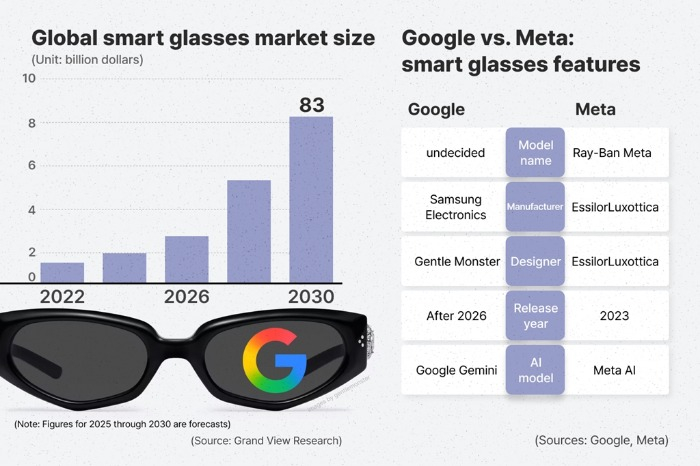
The company plans to integrate its Galaxy AI suite into about 400 million devices, including foldables and mid-range Galaxy A models, by the end of this year, doubling the previous year’s reach.
Roh said Samsung Galaxy device users will be allowed to use its core AI services “for free” for some time until further notice.
At Galaxy Unpacked 2025, Samsung debuted the Galaxy Z Fold7 and Z Flip7 alongside its latest smartwatch, Watch8.
Samsung said the latest Galaxy smartphones are its slimmest and most powerful foldables yet, loading them with AI tools and larger displays.
The Fold7 sees a price bump of about 150,000 won ($110), while the Flip7 holds pricing steady.
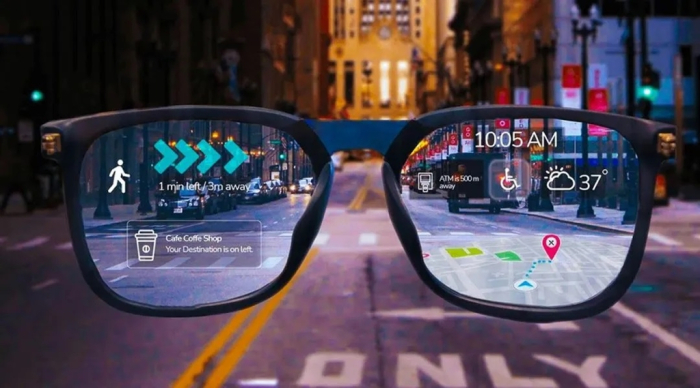
Initial pre-order data from the first few hours of launch has been “encouraging,” Roh said.
“Partners and retail channels have given us very positive feedback,” he said. “We believe this year’s lineup will outperform last year’s in sales.”
DIGITAL HEALTH
Beyond hardware, Samsung is also accelerating its push into digital health.
The company, also the world’s leading chipmaker, recently acquired Xealth, a US-based healthcare platform provider, as it steps up efforts to foster non-semiconductor businesses – robotics, healthcare services, consumer audio and cooling and heating systems – as future growth engines.
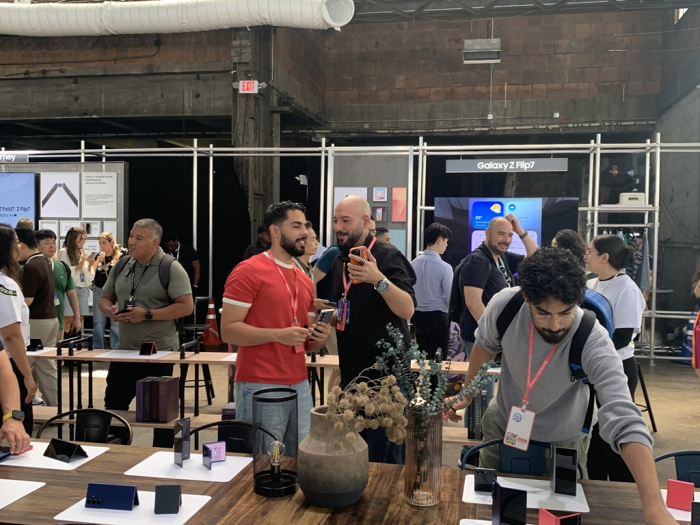
Spun out of the Providence health system in 2017, Xealth enables hospitals to manage digital health tools for patient care, like prescription and patient condition monitoring solutions, through a single platform.
It currently supports more than 500 US hospitals, including Advocate Health and Banner Health, and integrates patient data with care providers in real time.
Analysts said the acquisition is expected to bolster Samsung’s vision of a health-focused Galaxy ecosystem powered by AI and wearables.
By Shin-Young Park
nyusos@hankyung.com
In-Soo Nam edited this article.















